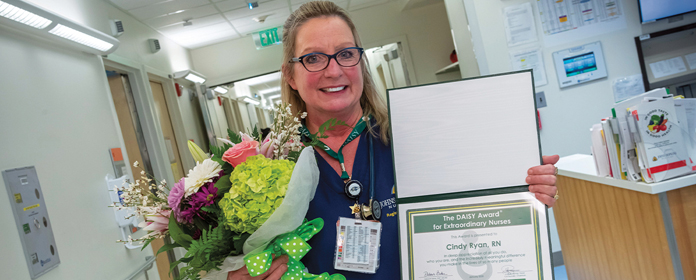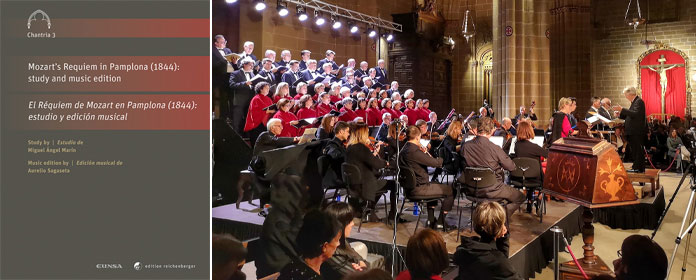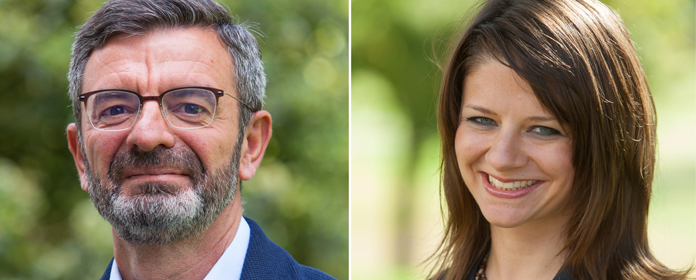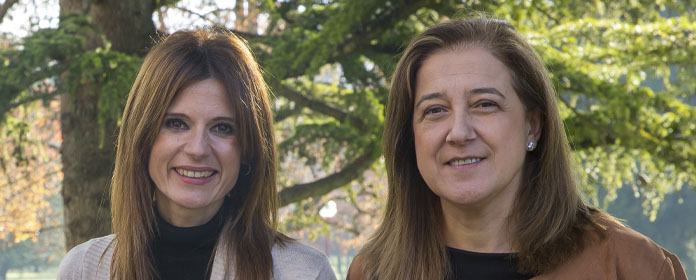A step towards the future of research: The second class of the Master of Social Science Research (MICS) celebrates its graduation
Eight students from five countries and five different universities studied the MICS during the 2017-2018 academic year
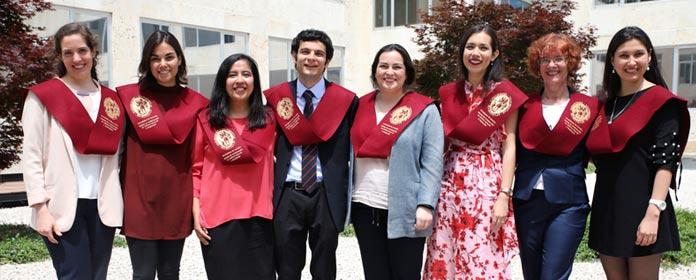
FOTO: María Jesús Ruiz
Eight students from Spain, Ecuador, France, Mexico and Peru graduated from the second class of the University of Navarra’s Master of Social Science Research (MICS for its initials in Spanish). The event was chaired by the director of the program, Ana Marta González, scientific coordinator of the Institute for Culture and Society (ICS), the master’s assistant director, Inés Olza, an ICS researcher, and Ramón Salaverría, member of the master’s academic board.
The second class includes Teresa Isabel Espinel, Roser Ferrer Xipell, Rachel François, Gabriela Pilar García Zavala, Regina Guzmán, María José Martínez Quesada, Fátima Salas Rodríguez and Pablo Úrbez.
Of the eight students, three have completed the MICS thanks to a grant from the Social Trends Institute, two through the Incentive Scholarships offered by the University of Navarra and Banco Santander, and one thanks a partial scholarship he won by participating in the ICS’s Social Sciences Essay Contest.
Interdisciplinarity and internationalityAt the beginning of the event, Inés Olza spoke about the class’s academic record. She highlighted that the graduates come from five countries, five different universities and very diverse backgrounds, including education, pedagogy, psychology, music, business, journalism, history and philosophy.
She also pointed out that, during this course, professors from all over the world gave classes, such as Margaret Archer (University of Warwick, president of the Pontifical Academy of Social Sciences), Richard Madsen (University of California, San Diego), Pierpaolo Donati (University of Bologna), Iain Wilkinson (University of Kent), Emanuela Mora (University of Milan) and Marco Gemignani (Duquesny University).
On behalf of her colleagues, Roser Ferrer, the class’s delegate, subsequently spoke. She recalled the path they have traveled together during these months and the challenges they have faced.
In addition, Ana Marta González spoke on the importance of interdisciplinary research in social sciences to face the challenges of today's world. For his part, Ramón Salaverría recalled the importance of this master for those who want to devote themselves to research, and encouraged students to keep in touch as they develop their academic careers.
During the ceremony, students’ final projects, which broadly focused on education, globalization and the family, were mentioned. Topics included research on intercultural communication in companies, the validation of a parental evaluation scale, the ability of teachers to empower their students and the lexicology of bilingual people.
A variety of fields and majorsThe MICS is coordinated by the Institute for Culture and Society in direct collaboration with the Schools of Communication, Law, Education and Psychology, Nursing, and Humanities and Social Sciences. It is recognized as an official master by the ANECA, the Spanish academic accrediting body.
The MICS is a gateway for students who wish to start an interdisciplinary research career in Social Sciences. Students choose from six majors, including Communication, Geo-demography, Linguistics, Education and Psychology, Law, and Nursing. Students have the option of choosing a double major as well.

